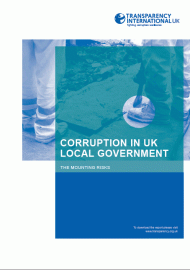
It has long been a contention of this website that democracy should be thought of not merely as a set of rules but as a culture. While elections and elected institutions are necessary, they are by no means sufficient. There is a range of other features that are needed to make any system of government democratic. These include political parties, an efficient and accountable administration, career paths for politicians, an active and enquiring media, and a sense of shared identity among the voters.
Simply to create an elected tier of government without these other characteristics is not necessarily going to lead to democracy.
This explains the failure of the prediction, for example, in the Ventotene Manifesto in 1941 that a united Europe might arise directly from the end of the second world war, when
the States will lie broken, when the masses will be anxiously waiting for a new message, like molten matter, burning, and easily shaped into new moulds capable of accommodating the guidance of serious internationalist minded men
No, creating a new supranational system of government is much harder than that, which is why even now the relatively obvious step of creating a European banking system seems so hard to take.
The failure of the last Labour government’s plans to set up regional government in England has the same cause. The regional borders were those drawn up by Whitehall, rather than those with which the voters might identify. There was little thought given to the kind of political culture that regional government might require: it was conceived of simply as bigger local government, and rejected by the voters on that basis.
A new example of the problem at local level is highlighted in a report published by Transparency International, “Corruption in UK local government – the mounting risks”. (Read the report here.) Local government is historically vulnerable to corruption: the report’s author Dr Elizabeth David-Barrett identifies conditions such as:
low levels of transparency, poor external scrutiny, networks of cronyism, reluctance or lack of resource to investigate, outsourcing of public services, significant sums of money at play and perhaps a denial that corruption is an issue at all.
Added to that is the government’s localism agenda – can powers be devolved from Westminster and Whitehall, can local government be given more freedom to use the existing powers that it has? This website likes the idea of devolving powers to local government, but
the system of checks and balances that previously existed to limit corruption has been eroded or deliberately removed. These changes include the removal of independent public audit of local authorities, the withdrawal of a universal national code of conduct, the reduced capacity of the local press and a reduced potential scope to apply for freedom of information requests.
Pause for thought.
Think of a democratic political system as an ecosystem. The various components all live in harmony with each other – the numbers go up and down, but the system is in balance. Now, if we reduce the influence of one pest – rats, say, or the local press – or if we allow some other creature to become too numerous – badgers and lawyers spring to mind – then balance can be impaired.
An example of this described in the report is the problem of one-party councils and uncontested seats. In the absence of electoral competition, administrations can become less, shall we say, scrupulous, and one of the key values of democracy – voter choice – becomes diminished. This was one of the reasons why Federal Union preferred the Alternative Vote to First Past The Post in the electoral reform referendum in 2011.
Healthy democracy depends not only on the fair conduct of elections but on the fair conduct of government. Giving local government more power, a positive development, demands also a lively culture of local democracy. The former without the latter could become very unhappy indeed.
